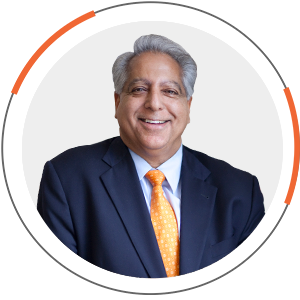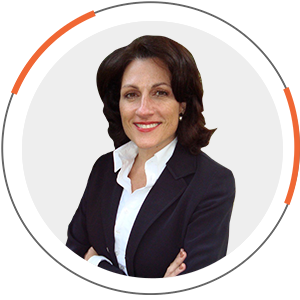
Investment Outlook , Published Feb 19, 2020


Outline
Gratitude, Friendship and Forgiveness along with a strong sense of purpose form the cornerstones of sustained happiness. Investing in meaningful experiences rather than material things impacts our attitudes and behaviour. We are not our possessions but instead are an amalgamation of our experiences.
Albert Schweitzer once wisely said, “Success is not the key to happiness. Happiness is the key to success.”
While happiness and wealth may often co-exist, it is well documented that money does not necessarily lead to happiness. While a more robust bank account may alleviate stress, it is not the source of joy. As a case in point there is much happiness that abounds among the slum dwellers of Calcutta and the shanty towns of Joberg.
Conventional wisdom would lead you to believe that winning the lottery will result in unmitigated happiness, but a study of lottery winners conducted in 1978 found that lottery winners reported that their windfall actually decreased enjoyment of life. It’s true. Most lottery winners were no happier in the long term than before they hit the jackpot.
There were two notable exceptions. First, those lottery winners who contributed to charitable causes were far happier than those winners who did not give some of their money away to benefit others. Second, those winners who used their newfound windfall to invest in meaningful experiences rather than using it to buy more stuff were happier in the long run.
Remember, true wealth is what fortunes cannot forge and death cannot diminish.
Let’s look at the flip side of winning the lottery. Christopher Reeve, best known for his role as Superman had a horseback riding accident resulting in a devastating spinal cord injury that left him a quadriplegic. His every breath was dependent on a respirator. Despite this tragedy, Reeve established a foundation to help others with similar injuries. He might have despaired at these circumstances, but he chose not to. In fact, as he so eloquently said, “I’m not living the life I thought I would lead, but it does have meaning, purpose. There is love… there is joy… there is laughter.”
Whether you are wealthy or not, here are four tenets that will lead you to a happy life:
1. Gratitude
2. Friendship
3. Forgiveness
4. For others
Gratitude:
Practising gratitude is one of the most meaningful ways to boost your happiness quotient. Robert Emmons from the University of California determined that practising gratitude has innumerable and measurable benefits like:
• More meaningful relationships
• Better physical and mental health
• Improved academic performance
• Greater empathy
• Reduced aggression
• More restful sleep
• Increased self-esteem and, thus, reduced
social envy
• Greater resistance to trauma

This simple practice offers you all these benefits. It was recorded that if you express gratitude in writing for even a few minutes every day for only six weeks, you will notice that you are significantly happier. This practice is available not only for adults but also for children. Consider how you can incorporate it daily in the lives of your children.
Mahatma Gandhi knew this to be true. He said, “happiness is when what you think, what you say, and what you do are in harmony.” Practicing gratitude brings you closer to this.
Friendship: Best-selling author Jim Rohn wisely said, “You are the average of the five people you spend the most time with.” These five people shape who you are, determine the conversation that dominates your attention and affects which attitudes and behaviour you are regularly exposed to. Additionally, David McClelland of Harvard wrote that “the people you habitually associate with determine as much as 95 percent of your success or failure in life.”
The longest study conducted on the topic of happiness is the Harvard Grant Study. It began nearly eight decades ago and is still ongoing. For over 75 years, this study tracked the physical and emotional well-being of two populations: poor men growing up in Boston and male graduates of Harvard. This sophisticated study involves surveys, brain scans and blood samples.
The findings are clear. The clearest finding from the study is that loneliness is toxic and that your satisfaction with the relationships in your life at age 50 is a better predictor of health, happiness and longevity at age 80 (three decades later) than blood pressure, cholesterol and EKG.
The seminal message of the study is that good relationships keep us happier and healthier. In fact, trusted relationships even protect our brains from cognitive decline.
Forgiveness: Thich Nat Hahn famously said, “compassion is a verb.” Compassion for others as demonstrated by forgiving trespasses and hurtful behaviour of others is the most powerful antidote to unhappiness. You might want to think about forgiveness as a gift you give yourself. By forgiving others you are freeing your spirit to soar and love others.
Nelson Mandela, when released from his South African prison cell after being held captive was asked if he harboured resentment for his captives. His response: “I have no bitterness. I have no resentment. Resentment is like drinking poison and hoping it will kill your enemies.”
For Others: Among the happiest people are those who are philanthropic. Philanthropy is best described as love for humanity expressed through acts. Referencing Albert Schweitzer once again, he said, “I don’t know what your destiny will be but one thing I am certain of, the ones amongst you who will be truly happy are those who have sought and found how to serve.”
Another way to think about this is that in order to have sustained happiness, you must live your purpose. Your purpose in life can be simple or it can be audacious. What’s important is that you find a purpose that resonates with you. It can be as simple as tending a garden or being a good friend or as grand as launching a foundation that makes a meaningful contribution to humanity.
We have learned from understanding the experience of those in hospice that there are five things people on their deathbeds most regret.
Do you think they say, “I should have bought a Tesla?” A New Yorker cartoon has some fun with this thought. It portrays a man on his death bed saying, “I should have bought more stuff.”
Rather they say,
However you choose to live your life, live it in a way that you do not have any regrets expressed like those in hospice, and allow your life’s purpose to direct your heart and lead your actions.
Mark Twain wisely summed it up: “The two most important days in your life are the day you are born and the day you find out why.”
About Dr Sanjiv Chopra
Dr Sanjiv Chopra is an Indian-born American physician, professor of medicine and former faculty Dean for continuing medical education at Harvard Medical School. Dr Chopra is committed to inspiring young minds and helping science, education, medical students, and doctors find a path of purpose: saving lives. He is also a bestselling author and a sought-after motivational speaker throughout the United States and abroad.
About Gina Vild
Gina Vild is the Associate Dean and Chief Communications Officer for the Office of Communications and External Relations at Harvard Medical School. She is a curator of poetry, skilled public speaker and a life-long learner. Gina has co-authored books like The Two Most Important Days: How to Find your Purpose and Live a Happier and Healthier Life.
Download Investment Outlook 2020
Download Investment Outlook 2019
Download Investment Outlook 2018
Download Investment Outlook 2017
Investment Outlook 2020